第25章
The thing which is to be called money must, therefore, have cost as much industry to produce it, or even to put it into the hands of others, as may be equivalent to the industry or labour required for the acquisition of the goods or wares or merchandise, as natural or artificial products, for which it is exchanged.For if it were easier to procure the material which is called money than the goods that are required, there would be more money in the market than goods to be sold; and because the seller would then have to expend more labour upon his goods than the buyer on the equivalent, the money coming in to him more rapidly, the labour applied to the preparation of goods and industry generally, with the industrial productivity which is the source of the public wealth, would at the same time dwindle and be cut down.Hence bank notes and assignations are not to be regarded as money, although they may take its place by way of representing it for a time; because it costs almost no labour to prepare them, and their value is based merely upon the opinion prevailing as to the further continuance of the previous possibility of changing them into ready money.But on its being in any way found out that there is not ready money in sufficient quantity for easy and safe conversion of such notes or assignations, the opinion gives way, and a fall in their value becomes inevitable.Thus the industrial labour of those who work the gold and silver mines in Peru and Mexico-especially on account of the frequent failures in the application of fruitless efforts to discover new veins of these precious metals- is probably even greater than what is expended in the manufacture of goods in Europe.Hence such mining labour, as unrewarded in the circumstances, would be abandoned of itself, and the countries mentioned would in consequence soon sink into poverty, did not the industry of Europe, stimulated in turn by these very metals, proportionally expand at the same time so as constantly to keep up the zeal of the miners in their work by the articles of luxury thereby offered to them.It is thus that the concurrence of industry with industry, and of labour with labour, is always maintained.
But how is it possible that what at the beginning constituted only goods or wares, at length became money? This has happened wherever a sovereign as great and powerful consumer of a particular substance, which he at first used merely for the adornment and decoration of his servants and court, has enforced the tribute of his subjects in this kind of material.Thus it may have been gold, or silver, or copper, or a species of beautiful shells called cowries, or even a sort of mat called makutes, as in Congo; or ingots of iron, as in Senegal; or Negro slaves, as on the Guinea Coast.When the ruler of the country demanded such things as imposts, those whose labour had to be put in motion to procure them were also paid by means of them, according to certain regulations of commerce then established, as in a market or exchange.As it appears to me, it is only thus that a particular species of goods came to be made a legal means of carrying on the industrial labour of the subjects in their commerce with each other, and thereby forming the medium of the national wealth.And thus it practically became money.
The rational conception of money, under which the empirical conception is embraced, is therefore that of a thing which, in the course of the public permutation or exchange of possessions (permutatio publica), determines the price of all the other things that form products or goods- under which term even the sciences are included, in so far as they are not taught gratis to others.The quantity of it among a people constitutes their wealth (opulentia).
For price (pretium) is the public judgement about the value of a thing, in relation to the proportionate abundance of what forms the universal representative means in circulation for carrying on the reciprocal interchange of the products of industry or labour.* The precious metals, when they are not merely weighed but also stamped or provided with a sign indicating how much they are worth, form legal money, and are called coin.
*Hence where commerce is extensive neither gold nor copper is specially used as money, but only as constituting wares; because there is too little of the first and too much of the second for them to be easily brought into circulation, so as at once to have the former in such small pieces as are necessary in payment for particular goods and not to have the latter in great quantity in case of the smallest acquisitions.Hence silver- more or less alloyed with copper- is taken as the proper material of money and the measure of the calculation of all prices in the great commercial intercommunications of the world; and the other metals- and still more non-metalic substances-can only take its place in the case of a people of limited commerce.
According to Adam Smith: "Money has become, in all civilized nations, the universal instrument of commerce, by the intervention of which goods of all kinds are bought and sold or exchanged for one another." This definition expands the empirical conception of money to the rational idea of it, by taking regard only to the implied form of the reciprocal performances in the onerous contracts, and thus abstracting from their matter.It is thus conformable to the conception of right in the permutation and exchange of the mine and thine generally (commutatio late sic dicta).The definition, therefore, accords with the representation in the above synopsis of a dogmatic division of contracts a priori, and consequently with the metaphysical principle of right in general.
II.What is a Book?